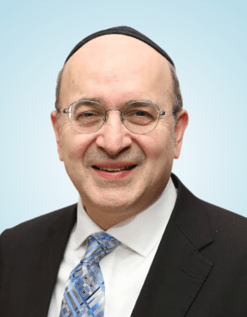 A note from AMC Health CEO Nesim Bildirici
A note from AMC Health CEO Nesim Bildirici
Let’s take a moment to talk about health equity. This is a topic that sits at the forefront of many payer’s minds. But equity is more than just a word, and that is worth discussing.
Equity doesn’t mean that all things are equal. Rather, equity speaks to the opportunity for everyone to have a fair and just chance at being healthy. That’s a mission that we at AMC Health strive for through our operations and clinical approach.
Health equity has always been a challenge filled with several friction points including access to care, bias, and literacy. However, 2020’s pandemic shed a light on the darkest corners of the obstacles facing many Americans. As COVID-19 ravaged communities, the outbreak forced our industry to look at healthcare differently by amplifying the extremes in care equity.
Equity isn’t a one-size-fits-all approach. Pockets of people were exposed as vulnerable in ways that others easily glazed over. This included more than health literacy and communication, as well as implicit bias. However, by illuminating barriers associated with socioeconomic status, bias, access, and how news is shared, the healthcare system came face-to-face with the looming problem of inequality.
How do we as healthcare professionals address this problem? Plans across the country are being asked that question every day. It’s not that there aren’t answers available. AMC Health strives to provide resolutions based on actual data that helps inform about trends while preventing new and ongoing occurrences. However, as time passes, friction becomes more prevalent. And with lives on the line, we simply can’t wait a second longer to address this need.
So, when we speak of health equity, we mean creating a community where everyone has accessible care for their overall well-being. Health deserts and areas void of care are real. People need doctors, care teams, and assistance in their homes to help monitor and treat their ailments and chronic illnesses. That’s where technology, data, people, and processes working in conjunction come to the rescue. For some, a lack of access to WIFI or broadband is a reality. We remove that barrier by providing cellular-enabled tables that can connect members to the healthcare others may take for granted.
These barriers exist for countless Americans. For equality to be attainable, these hurdles need to be torn down. We focus on providing solutions that reduce obstacles and deliver care. You are facing tremendous pressure to address these problems. When quality measures such as HEDIS and STARS are brought into the mix, these challenges seem even more daunting.
-1.jpg)
%20(1).png)
-3.jpg)

-Dec-16-2025-08-31-35-5224-PM.jpg)
